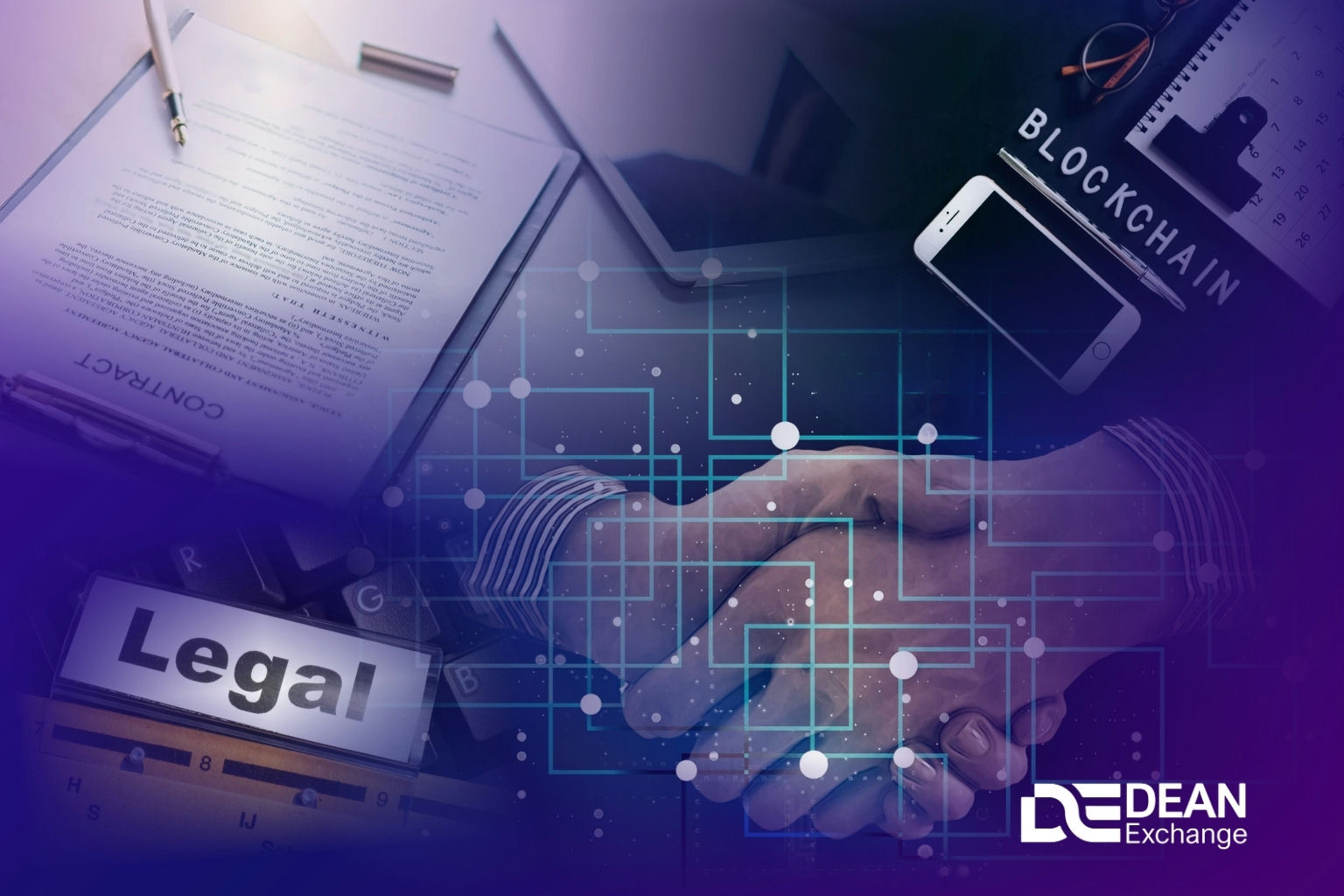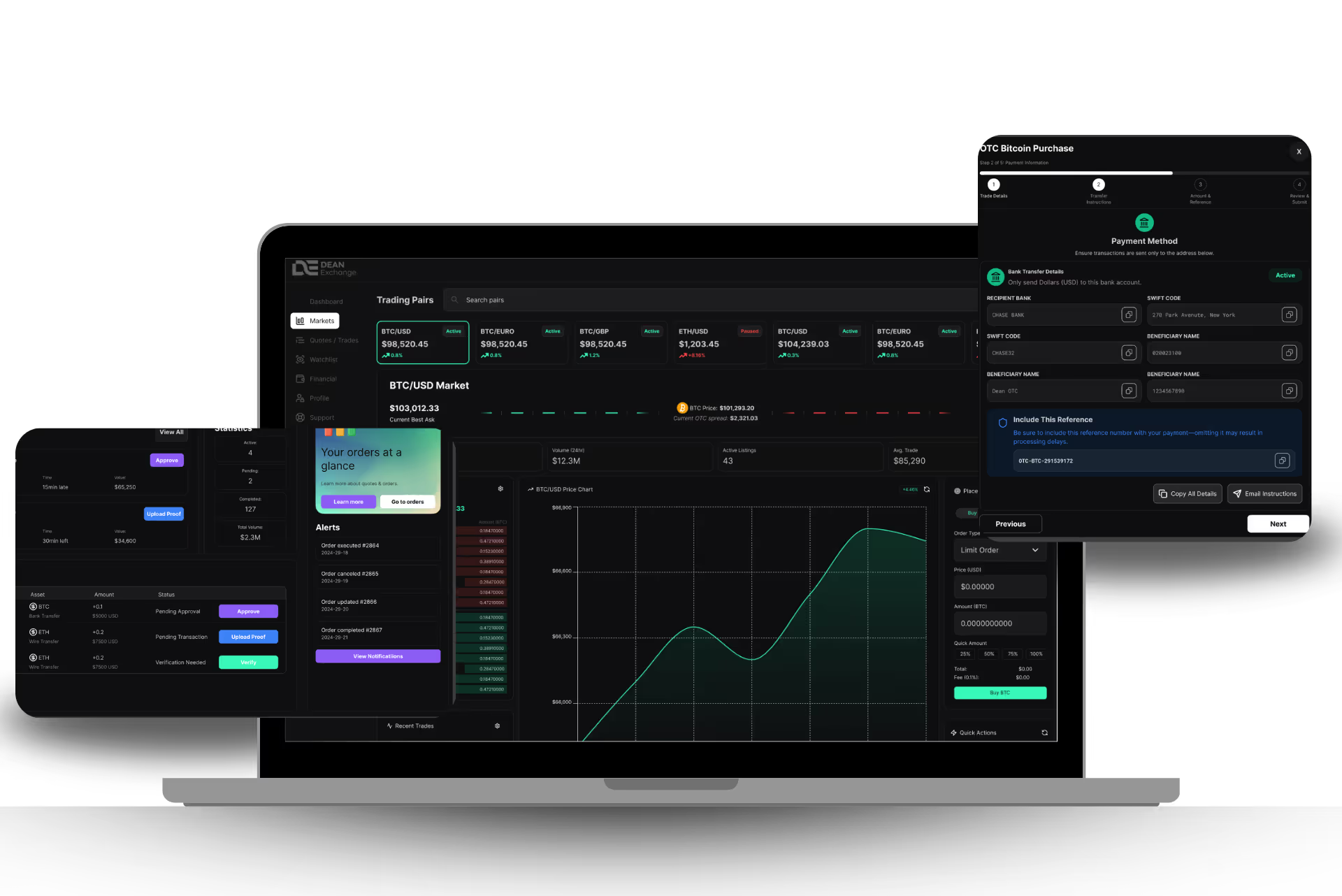By the
This is some text inside of a div block.
This is some text inside of a div block.
•
5
min read

As digital transformation reshapes industries, the legal profession is not exempt. While blockchain technology is often associated with cryptocurrencies, its broader impact on legal operations, contract execution, and data verification is increasingly clear. Legal professionals—attorneys, general counsels, compliance teams—must now confront a new question: How does blockchain change the practice of law?
This article provides a structured, professional guide for legal teams exploring what is blockchain, the mechanics of smart contracts, and how these innovations are redefining areas like contracts, intellectual property, and digital identity. At Dean Exchange, we support professionals with education, live blockchain sessions, and cryptocurrency tutorials tailored to practical legal applications.
Blockchain technology is a secure, decentralized ledger system that records data across a distributed network of computers. Every entry—known as a “block”—is timestamped and cryptographically linked to the previous one, creating a permanent, tamper-proof record.
In contrast to traditional recordkeeping systems controlled by one entity (e.g., a bank or government agency), blockchain systems are peer-managed. Once information is recorded, it becomes extremely difficult to alter, making it ideal for sensitive legal data, evidentiary documents, or contract archives.
These features align well with legal principles such as integrity of evidence, non-repudiation, and accountability.
A smart contract is a self-executing agreement with the terms written directly into code. Once deployed on a blockchain, the contract operates automatically: if the conditions coded into it are met, the contract executes without further action from either party.
For legal professionals, this means a shift from traditional, document-based contracts toward automated, verifiable transaction logic.
Smart contracts do not replace the law—but they redefine how contractual obligations are fulfilled. Lawyers may still draft or interpret traditional agreements that sit alongside smart contracts, particularly to address:
As this space evolves, legal professionals will play a critical role in bridging legal language and code logic—ensuring that smart contracts reflect intent and meet enforceability standards.
Legal teams can leverage smart contracts for repetitive, rule-based agreements—such as NDAs, vendor contracts, or service-level agreements. Once signed and triggered, these contracts execute automatically.
Example:
In a licensing agreement, a smart contract could automatically distribute royalty payments to rights holders each time a digital asset is used, without manual invoicing or third-party oversight.
Blockchain’s timestamping and immutability make it a powerful tool for proving ownership or authorship. Creators can register work (e.g., manuscripts, code, designs) on-chain, creating verifiable evidence of origin.
Benefits:
This enhances protection and enforcement, particularly in industries like publishing, art, software development, and entertainment.
Know Your Customer (KYC) and Anti-Money Laundering (AML) compliance are resource-intensive. Blockchain-enabled digital identity systems offer clients more control over their data while ensuring legal teams can verify documents reliably.
Example:
A client could grant a law firm temporary access to a verified digital identity (passport, proof of address) stored on a blockchain. Once verified, the law firm no longer retains unnecessary personal data—aligning with GDPR and similar data protection laws.
Maintaining a clear, unbroken chain of custody is vital for evidence handling. Blockchain provides a verifiable trail for document access, edits, transfers, and timestamps.
Use Case:
In litigation or compliance investigations, blockchain can prove that digital evidence (emails, contracts, records) has not been altered—bolstering admissibility in court or arbitration.
Blockchain-based platforms are emerging to handle arbitration or micro-disputes using on-chain evidence and voting mechanisms. While still experimental, these tools may soon support cross-border commerce and smaller contractual disagreements with reduced legal overhead.
Legal teams do not need to become blockchain developers—but they do need to understand the fundamentals in order to advise clients, draft future-ready contracts, and stay ahead of regulatory developments.
Dean Exchange offers tailored content to help legal professionals build this knowledge through:
Not every legal process needs blockchain. Start by identifying areas where transparency, automation, or verification can reduce risk or improve efficiency.
Work closely with developers to ensure legal intent is captured in smart contract logic. Legal input early in the development cycle prevents misalignment or exposure later.
Monitor evolving legislation around digital assets, data privacy, and smart contracts. Jurisdictions vary significantly in how they define enforceability and liability.
Test blockchain applications in a controlled environment. For example, create a digital signature registry, or explore automated NDAs using smart contract templates.
Dean Exchange is more than a cryptocurrency platform. We’re building a bridge between blockchain innovation and practical implementation—for professionals across industries.
For legal teams, our platform offers:
Whether you represent a law firm, serve as in-house counsel, or work in compliance, Dean Exchange helps you navigate blockchain’s legal dimensions with clarity and confidence.
Blockchain is not just for developers and traders. For the legal industry, it offers new ways to ensure security, integrity, and efficiency in legal processes. From smart contracts to digital rights and beyond, blockchain is quietly transforming how law is practiced and enforced.
Legal professionals who understand this shift will be better equipped to advise clients, draft future-proof agreements, and lead innovation within their organizations.
Interested in learning more?
Join Dean Exchange to access legal-friendly blockchain education, participate in live blockchain sessions, and stay informed with the latest insights on smart contracts and legal tech innovation.


Join our newsletter for exclusive insights, breaking crypto trends, and learning opportunities—delivered straight to your inbox.